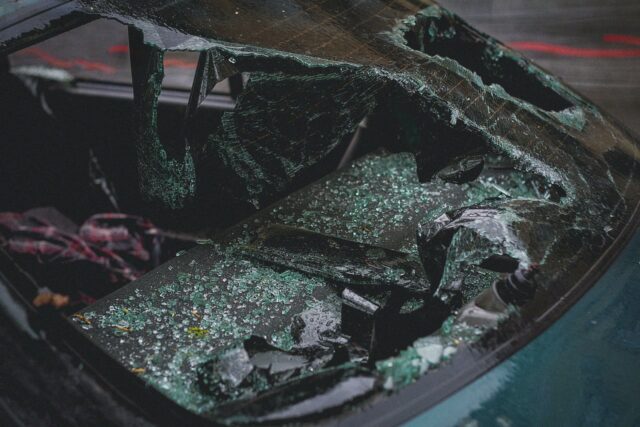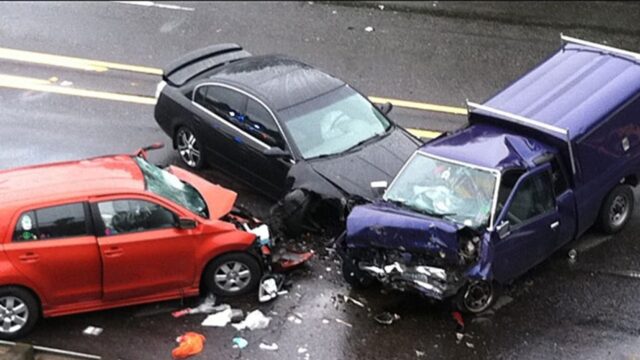
There are certain steps that you should follow if you’ve been injured in a car accident. Unfortunately, many people panic when they’re involved in a car accident and forget to follow the right procedures, and usually end up taking the blame for the accident, even if it wasn’t their fault, or they might not be able to file an insurance claim correctly. To avoid such situations, you should stay calm so you can think clearly and take the right steps.
If you’re not sure what should be done when you get injured in a car accident, here are the first 5 steps you should follow.
1. Find a Safe Spot

Many people recommend staying at the scene until it’s appropriate to do so. However, if the accident took place in the middle of the road, you should move your car away from the road to avoid being hit by other cars and ensure that no one else gets hurt. Before you move your car, you should make sure of two things. First, that your injuries are not severe, and that you can move your body safely. The second thing is to make sure that your car can run and that the crash didn’t affect the engine. Once you’re sure that your injuries are not dangerous and that your car is working fine, move to a safe spot so you’d be able to follow the rest of the procedures.
In case you’re not able to move your arms, legs, or any other body part, it’s recommended to stay where you are until medical help arrives. If you find smoke coming out of the car or it’s not working properly, get out of the car and stay far away from it until the police arrive.
2. Call the Police

Even if you think that the crash wasn’t serious or your injuries are not severe, it’s important to inform the police. After you move to a safe spot, call law enforcement so they can come to the crash scene and take your statement. It’s important to inform the police about the accident because they will investigate what happened, interview all parties involved, and ask the witnesses for their statements. Law enforcement will be able to determine who was at fault, which will help you when you’re filing for your insurance claim.
When the police arrive, you should follow their instructions and provide an accurate statement of what happened. If you’re in shock and you’re not able to clearly remember what happened exactly, let the police know that you don’t remember. Additionally, you should avoid assuming or speculating on what happened while giving your statement. If you assumed what happened and it’s not accurate, it could be held against you while the police investigate who’s at fault. So, it’s better to stick to the truth without adding your opinion or assumptions.
3. Contact Your Lawyer

Right after calling the police, you should contact your attorney to let them know what happened so they can tell you what will happen next. Many people wait until they are home to contact their attorney. However, professional lawyers at seerden-law.com recommended that you call your lawyer right after the crash. Informing your lawyer of the situation right away gives the lawyer the ability to work on your case immediately and provide you with all the legal advice you may need during the process.
You will also be able to give your lawyer the time to investigate the case while you’re still at the scene and handle all the process regarding your insurance company and the police report. Many lawyers say that when their clients call them immediately after the crash, it helps them in collecting all the evidence they need and identifying all possible sources of insurance coverage. So even if your injuries are not severe and your car is working fine, it’s preferable to contact your attorney as soon as possible.
4. Seek Medical Help

It’s essential to visit the hospital after you finish all the legal procedures. Even if your injuries are not severe and you feel fine, you should seek medical help. A lot of people feel pain 24 hours after the accident because some injuries don’t appear right away. So, in order to avoid that, let a doctor examine you to ensure that there’s nothing more than superficial injuries. In case you find other injuries that were caused by the accident, it’s important to take a statement from the hospital so you can add it to the police report you made and provide it to your lawyer. This will also ensure that all your medical bills will be covered by the insurance company.
5. Limit Your Conversation

Some people try to calm other parties involved in the accident by telling them that it’s not a big deal or that it wasn’t their fault. However, by doing this you could get in trouble or lose your insurance claim. You might want to have a friendly conversation with the other parties so you and everyone involved are calm, but talking about the accident and who might be at fault is not recommended.
Experienced lawyers recommend that you keep your conversation about the accident limited to the police and your attorney. Don’t try to assume what happened, who’s at fault, or whether it was a severe accident or not as this might be held against you. The other party’s insurance company could take your words and use it against you in order to blame you for the crash and decline your claim.
Everyone is at risk of getting involved in a car crash, that’s why we all should know the right steps that should be followed right after an accident, especially if you or any of your passengers were injured. If you’re injured, you shouldn’t underestimate your injuries and let a doctor examine you as soon as possible. Some injuries might seem small, but you might face other complications a few days after it.
You should also make sure that you gather all the needed information and evidence that will help you file for an insurance claim. Take pictures of the car crash, your injuries, and the other party’s plate number. Gather contact information from the other person involved as well as the witnesses around you. That way you will have all the evidence you might need in case the insurance company refused to offer compensation







